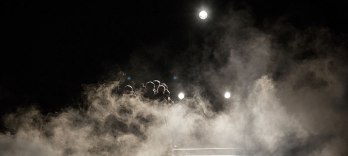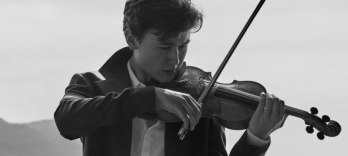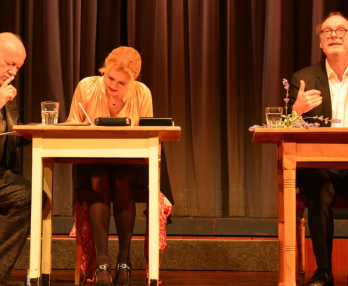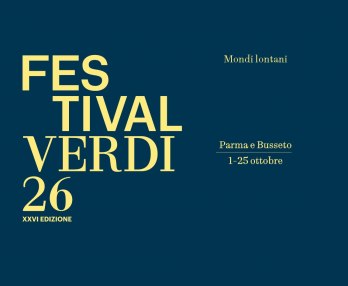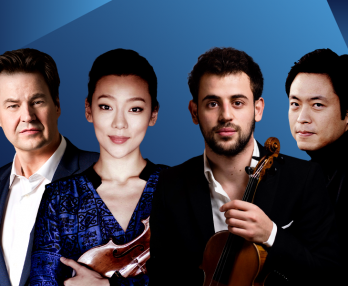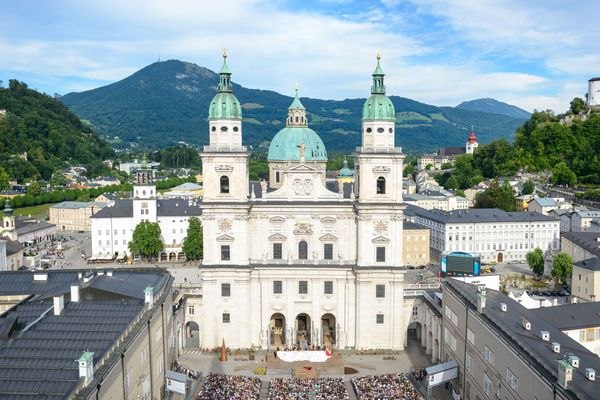All genres
Salzburg Festival Tickets
Parndorf Summer Theatre
Weinviertel Festival
Kittsee Summer Festival
Grafenegg Festival
Carinthian Summer
Lehár Festival Bad Ischl
Mörbisch Festival
Stift Klosterneuburg
St Margarethen Festival
St. Margarethen Passion Festival
Tyrolean Festival Erl
Styriarte Festival
Linz CultureSummer in Rosengarten
Herbst Festival at Esterházy Castle
Perchtoldsdorf Festival
Linz Classic at the Cathedral
Opera Gars Castle
Bregenz Festival Tickets
Liszt Festival Raiding
Klassik unter Sternen
Cultural Summer Laxenburg
Festival Berndorf
Festival Castle Weitra
Summer Games Melk
Reichenau Festival
Sommerarena Bühne Baden
Schloss Haindorf Langenlois
Felsenbühne Staatz
Stockerau Festival
Bühne Baden
Schloss-Spiele Kobersdorf
Musical Summer Kufstein
Festival Castell Peralada
Canary Islands International Music Festival
Bayreuth Festival 2026
Bayreuth Baroque Opera Festival
Baden-Baden Festival
Hessian State Theatre Wiesbaden
Rossini in Wildbad
Heidenheim Opera Festival
Oberammergau Passion Plays
Munich Opera Festival
Thurn and Taxis Palace Festival
Immling Festival
Arena di Verona Festival
Caracalla Festival Rome
Puccini Festival
Sferisterio Festival
Taormina Festival
Taormina Mythos Opera Festival
Greek Theatre of Syracuse Festival
Ravena Festival
Stresa Festival
Verdi Festival Parma
Festival of the Maggio Musicale Fiorentino
Teatro Romano Verona
Rossini Opera Festival
Piccolo Opera Festival
Festival dei Due Mondi
Taranto Opera Festival
RDS Stadium Festival
Bologna Festival
Vicenza Opera Festival
Arena di Verona Pop Rock Concerts
Savonlinna Festival
Glyndebourne Festival
Download Festival Tickets
Chorégies d’Orange Festival
Festival d'Aix-en-Provence
International Baroque Opera Festival of Beaune
Budapest Summer Festival
Margaret Island
Janáček May International Music Festival
Prague Spring International Music Festival
Ljubljana Opera Festival
Jerusalem Lyric Opera Festival
Klarafestival
Summer opera Alden Biesen
Harpa Concert Hall
Opera Hedeland
Copenhagen Opera Festival
Bergen International Festival
Opera Østfold Fredriksten Festning
Oscarsborg Opera
Verbier Festival
Elevate Opera Fest
St. Galler Festspiele
Belgrade Waterfront Opera Festival
George Enescu Festival
Festivals in Malta
All venues
Abbey library of St.Gallen
Amadeus International School
Amphitheatre Mikulov
Arena di Verona Pop Rock Concerts
Auditorio Alfredo Kraus
Auditorio de Tenerife
Auditorium Campra, Conservatoire Darius Milhaud
Auditorium della Stella
Auditorium Scavolini
Bad Wildbad
Bayreuth Festival
Belgrade Waterfront
Belvedere
Bregenz Festspielhaus
Bregenzer Festspiele - Seebühne
Cankar Centre
Carmen Church
Cashmere Lodge Mother Island
Castle of San Giusto
Castle of Spessa
Choregies d Orange Festival
Church of San Michele in Bosco
Church of the Mother of God Taranto
Church St Ambrogio and Theodulo
Collegiate Church
Domplatz Linz
Domplatz Salzburg Cathedral Square
Download Festival, Donington Park
Dr. Karl Renner Square
Eggenberg Castle
Esterházy Castle
Felsenarena Limberg-Maissau
Felsenbühne Staatz
Felsenreitschule
Festival Ljubljana
Festspielhaus Baden-Baden
Festspielhaus Erl
Franz Liszt Centre
Fredriksten fortress
Fusco Theater Taranto
Giuseppe Verdi Theater Busseto
Glass Hall Theatre, Tivoli
Glyndebourne
Göttweig Abbey
Grafenegg Auditorium
Grafenegg Festival, Austria
Grand Theatre of Provence
Greek Theatre of Syracuse
Grieg Hall
Großes Festspielhaus
Gstetten Poysdorf
Harpa Concert Hall
Hellenstein Castle
Henry Le Boeuf
Hermitage Santa Caterina del Sasso
Hessian State Theatre Wiesbaden
Hotel Maynier d Oppede
House for Mozart
Il Maggiore Verbania
Immling Festival
Imperial court of the monastery Klosterneuburg
Inner courtyard Thurn and Taxis Castle
International Baroque Opera Festival Beaune
Jerusalem Lyric Opera Festival
Jeu de Paume Theatre
Kerimäki Church
Kittsee Castle Park
KKL Luzern Concert Hall
Kleines Festspielhaus
Klosterhof St. Gallen
Kongress und TheaterHaus Bad Ischl
Križanke
Kufstein Fortress
Leisure centre Perchtoldsdorf Open Air
Lucca Summer Festival
Macerata Sferisterio
Margravial Opera House
National Theater Bergen
Olavinlinna Castle
Opera Gars Castle
Oratory of Saint Philip Neri
Oscarsborg Fortress
Palace Hall Sala Palatului
PalaDozza
Palm Game Theatre
Parndorf Summer Theatre
Passionsspielhaus Erl
Passionsspielhaus Selzach
Perchtoldsdorf Castle
Pergola Theatre
Perner-Insel, Hallein
Piazza Duomo
Queen Elisabeth Hall
Ravena Festival
RDS Stadium
Regina Palace Hotel
Reichenau Castle
Roman Theatre of Orange
Romanian Athenaeum
Römersteinbruch Sankt Margarethen
Rose Garden at the Pöstlingberg Linz
Salzburg State Theatre
San Francesco del Prato
San Simone
Santi Bartolomeo e Gaetano
Santo Stefano, Bologna
Savonlinna Hall
Schloss Haindorf Langenlois
Schloss-Spiele Kobersdorf
Schlosspark Laxenburg
Schutzengelkapelle St Gallen
Seebühne Mörbisch - Mörbisch Am See
Sommerarena Baden
St Gallen Cathedral
St Laurenzen Church
St Peters Collegiate Church
Stadttheater Baden
Stiftung Mozarteum
Stresa Convention Centre
Studio Bergen
Styriarte The Styrian Festival
SZENE Salzburg
Tapestry Hall of Borromeo Palace
Teatro Antico di Taormina
Teatro Auditorium Manzoni
Teatro In Portico
Teatro Lauro Rossi
Teatro Nazarena Taormina
Teatro Nuovo Gian Carlo Menotti
Teatro Olimpico Vicenza
Teatro Palazzo dei Congressi Taormina
Teatro Romano
Teatro Romano Spoleto
Teatro Rossini
The Castle Gardens Auditorium
The King Håkon's Hall Bergen
The Saint Louis Yard
Theater Baden-Baden
Theater of the Archbishop
Theater on the Kornmarkt
Theater Reichenau
Theater Reichenau Neuer Spielraum
Theatre Caio Melisso
Tivoli Concert Hall
Torre del Lago Festival Puccini
Troldhaugen in Bergen
Verbier
Verona Arena
Vila Vipolže
Villa Ponti
Vitrifrigo Arena
Vitrolles Stadium
Wachauarena Melk

 EN
EN DE
DE IT
IT FR
FR ES
ES RU
RU JP
JP RO
RO
